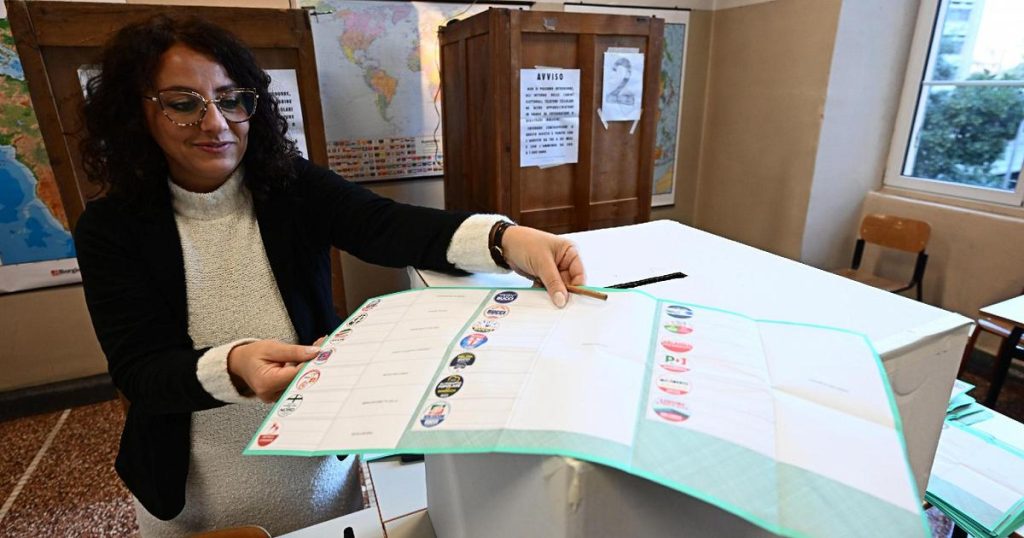Today, the regional elections in Liguria have begun, with 1,341,799 citizens eligible to vote for a new regional president and the thirty members of the legislative assembly. This follows the resignation of former governor Giovanni Toti, who was under house arrest for almost three months on charges of corruption and illegal financing, leading to the early elections. These elections are the first of three local tests that could have national repercussions. After Liguria, Emilia Romagna and Umbria will have their elections on November 17 and 18.
At noon, 13.07% of eligible voters had already cast their ballots, with turnout lower than in 2020 in all four provinces. In Genoa, 13.92% had voted (compared to 14.18% in 2020), in Savona 12.77% (14.70%), in Imperia 10.78% (13.12%), and in La Spezia 12.27% (13.26%). Nine candidates are vying for the presidency of Liguria, with a close race expected between Genoa mayor and former commissioner for the reconstruction of the Morandi Bridge, Marco Bucci, supported by a wide center-right coalition, and former Democratic Party minister Andrea Orlando, backed by a progressive coalition.
The election comes after a campaign marked by personal attacks and moments of tension between the center-right candidate, who initially refused to run but was convinced by Prime Minister Meloni despite his ongoing health issues and unfinished mayoral term, and the center-left candidate, whose defeat could jeopardize both his own future and that of the progressive coalition. With Genoa’s mayor initially trailing in the polls but quickly recovering lost ground, the rupture with Italy Viva could negatively impact the center-left’s chances, following tensions and disagreements with the Five Star Movement and other progressive parties.
For the center-right, the judicial upheaval that led to the early end of the previous legislature and Toti’s unexpected plea deal could affect the vote, with the potential for increased voter abstention. Recent polls have shown that almost half of voters may choose not to participate. The outcome of the election in Liguria could have implications both locally and nationally, with the balance between the center-right and center-left coalitions hanging in the balance.
Overall, the regional elections in Liguria represent a crucial test for both the center-right and center-left coalitions, with the outcome likely to shape the future political landscape in the region and potentially have ripple effects on the national level. The contest between Marco Bucci and Andrea Orlando is seen as a closely fought battle, with the potential for unexpected twists and turns given the complex political dynamics and alliances at play. Ultimately, the voters will decide the direction of Liguria’s governance and the impact it may have on the broader political landscape in Italy.


